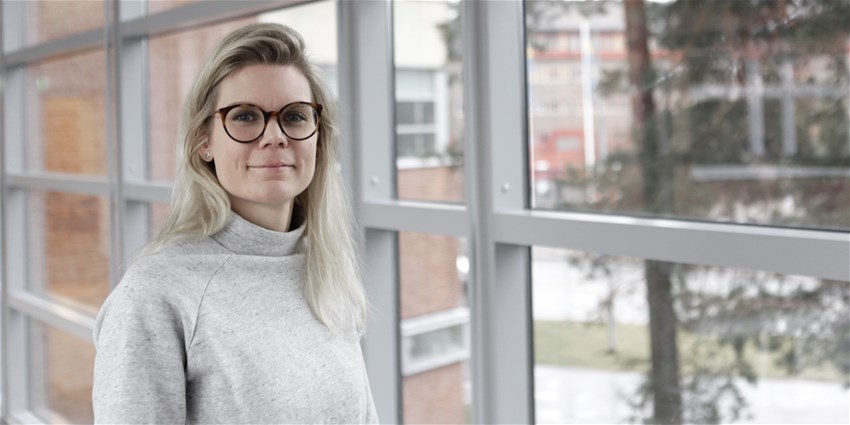“Reflection brings different forms of knowledge together”
28 Sep 2020
A new dissertation from University West studies how social workers understand and use reflection and the role of reflection in professional learning and knowledge development. The results show that reflection is important for enabling professional learning and knowledge development, that it can serve to protect social workers in difficult and emotionally charged situations and for reaching process and progress in the client-related work.

Reflection as a tool for learning is the focus in the dissertation of Jennie Ryding.
The empirical material in the dissertation consists of focus groups with social workers active in family support. Social workers with and without training in the strengths-based family-centered intervention Family Check-Up (FCU) participated in the study. The dissertation uses FCU as an example of an evidence-based model. The results shed light on social workers’ emphasis on the importance of reflection in social work when treating families.
- Social work is a complex profession and requires many different skills from professionals. They are in constant need of knowledge development to manage their professional practice, and they often describe reflection as an important tool, says Jennie Ryding, newly graduated doctor of pedagogy specialised in work-integrated learning at University West.
Less time for reflection
Reflection is important for experienced-based learning and is described as important for mitigating risks and avoiding mistakes in practical applications and can also lead to increased productivity.
- Despite its many good effects, time and other resources for reflection and reflective practice seem to have decreased in favor of other elements for quality assurance. This is concerning.
She cites evidence-based practice (EBP) as an example. EBP has received increasing attention over the past decade. EBP is being advocated for knowledge development based on systematically tested, scientific knowledge in social services. This has pitted different forms of knowledge against each other when formulating professional practice, and research-based knowledge is often described as more legitimate and dependable than experience-based.
- This is unfortunate as both practical knowledge (i.e. experience-based) and the ability to reflect are often both emphasized as invaluable for social work.
Positive for the organization as a whole
Jennie argues that reflection can sometimes be perceived as abstract and that it is difficult to measure. This means it is not valued as highly now that the focus for social work has shifted to increased attention to administration, productivity, and cost efficiency.
- But, the use of reflection in professional practice has capacity to lead to positive impact on the organisation. It can increase learning, which in turn can benefit productivity and other more measurable aspects. But this makes it important that staff are given time to reflect and that organisations examine how the workday is structured to enable this.
Different kinds of knowledge are needed
The results of the study show that different kinds of knowledge are needed to cope with the role as social worker.
- Experience-based and research-based knowledge are equally important, and the systematic use of reflection as a tool for learning integrates these different types of learning and knowledge. But then it is important to view reflection as part of the job and that the organisation takes this seriously.
Jennie Ryding hopes to have the opportunity to share her results with many types of organisations and that it will have an impact on how municipal social services organize work and hopefully that of other organisations. The next step will be to conduct a comparative study with other countries, in this case the United States, the Netherlands and Canada, where there are also professionals who are trained and active in Family Check-Up.
Contact: Jennie Ryding, jennie.ryding@hv.se, +46 (0)707-27 38 54
Link to video of Jennie Ryding discussing her field of research (in Swedish)
The dissertation project was co-financed by the Research centre for Child and Youth studies at University West and the Centre for progress in Children’s Mental Health in Gothenburg (UPH). UPH works with disseminating and implementing evidence-based models, including Family Check-Up (FCU).


